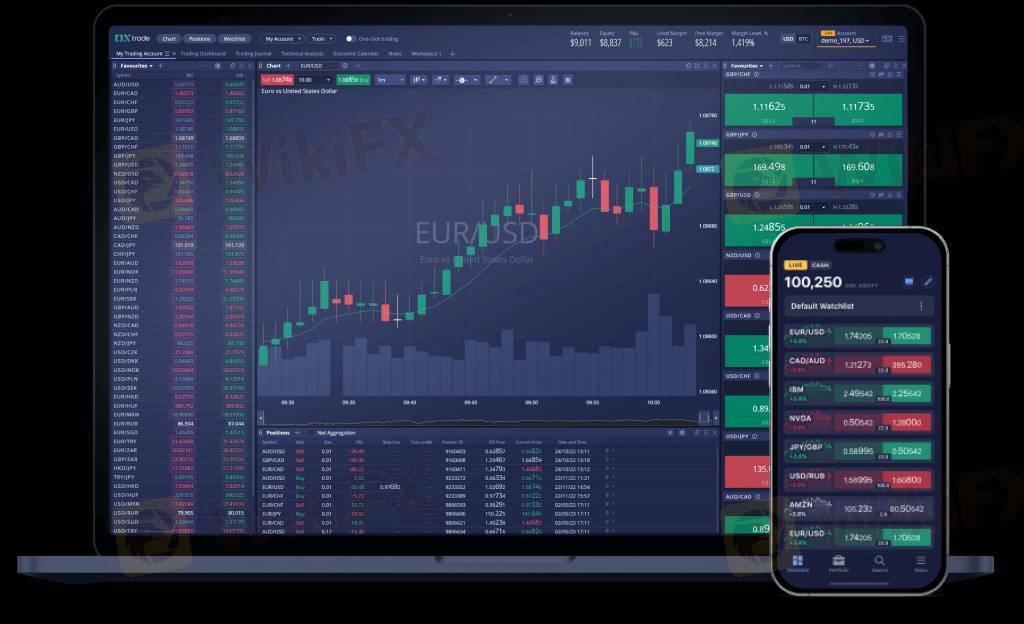
2025-01-20 22:49
IndustryGeopolitical Events and Forex Volatility
#firstdealofthenewyearFATEEMAH
Geopolitical events can have a significant impact on the forex market by triggering volatility and shifting market sentiment. Understanding these effects is crucial for traders looking to navigate the dynamic forex landscape successfully. Let's delve deeper into how geopolitical events influence currency movements:
Investor Sentiment: Geopolitical events can cause sudden changes in investor sentiment, leading to sharp movements in currency prices. Positive developments may boost confidence and encourage risk-taking, while negative events can trigger a flight to safety, favoring safe-haven currencies such as the US dollar or Japanese yen.
Capital Flows: Political instability or tensions can disrupt capital flows, impacting currency values. For instance, sanctions, trade disputes, or political crises may discourage foreign investment, putting pressure on affected currencies. Conversely, resolution of conflicts and improved relations can stimulate investments, strengthening the involved currencies.
Central Bank Responses: Geopolitical events can influence central bank policies, which in turn affect currency values. In response to heightened uncertainty, central banks may adopt dovish stances, cutting interest rates or implementing quantitative easing measures to support the economy, potentially weakening the currency.
Safe-Haven Assets: During times of geopolitical turmoil, investors often flock to safe-haven assets, such as gold, government bonds, and safe-haven currencies, causing their prices to rise. This flight to safety can trigger currency movements, as investors seek to protect their capital from potential market volatility.
Commodity Prices: Geopolitical tensions can disrupt commodity supplies and lead to price fluctuations. Since many currencies are closely tied to commodity markets (e.g., the Australian dollar and Canadian dollar), these price movements can impact currency values.
To navigate the volatility induced by geopolitical events, forex traders should stay informed about global developments, adapt their strategies accordingly, and practice effective risk management techniques, such as diversification and setting appropriate stop-loss levels. By understanding the complex relationship between geopolitics and currency movements, traders can better position themselves for success in the fast-paced forex market.
Like 0
FX3282278542
Trader
Hot content
Industry
Event-A comment a day,Keep rewards worthy up to$27
Industry
Nigeria Event Giveaway-Win₦5000 Mobilephone Credit
Industry
Nigeria Event Giveaway-Win ₦2500 MobilePhoneCredit
Industry
South Africa Event-Come&Win 240ZAR Phone Credit
Industry
Nigeria Event-Discuss Forex&Win2500NGN PhoneCredit
Industry
[Nigeria Event]Discuss&win 2500 Naira Phone Credit
Forum category

Platform

Exhibition

Agent

Recruitment

EA

Industry

Market

Index
Geopolitical Events and Forex Volatility
 Pakistan | 2025-01-20 22:49
Pakistan | 2025-01-20 22:49#firstdealofthenewyearFATEEMAH
Geopolitical events can have a significant impact on the forex market by triggering volatility and shifting market sentiment. Understanding these effects is crucial for traders looking to navigate the dynamic forex landscape successfully. Let's delve deeper into how geopolitical events influence currency movements:
Investor Sentiment: Geopolitical events can cause sudden changes in investor sentiment, leading to sharp movements in currency prices. Positive developments may boost confidence and encourage risk-taking, while negative events can trigger a flight to safety, favoring safe-haven currencies such as the US dollar or Japanese yen.
Capital Flows: Political instability or tensions can disrupt capital flows, impacting currency values. For instance, sanctions, trade disputes, or political crises may discourage foreign investment, putting pressure on affected currencies. Conversely, resolution of conflicts and improved relations can stimulate investments, strengthening the involved currencies.
Central Bank Responses: Geopolitical events can influence central bank policies, which in turn affect currency values. In response to heightened uncertainty, central banks may adopt dovish stances, cutting interest rates or implementing quantitative easing measures to support the economy, potentially weakening the currency.
Safe-Haven Assets: During times of geopolitical turmoil, investors often flock to safe-haven assets, such as gold, government bonds, and safe-haven currencies, causing their prices to rise. This flight to safety can trigger currency movements, as investors seek to protect their capital from potential market volatility.
Commodity Prices: Geopolitical tensions can disrupt commodity supplies and lead to price fluctuations. Since many currencies are closely tied to commodity markets (e.g., the Australian dollar and Canadian dollar), these price movements can impact currency values.
To navigate the volatility induced by geopolitical events, forex traders should stay informed about global developments, adapt their strategies accordingly, and practice effective risk management techniques, such as diversification and setting appropriate stop-loss levels. By understanding the complex relationship between geopolitics and currency movements, traders can better position themselves for success in the fast-paced forex market.
Like 0
I want to comment, too
Submit
0Comments

There is no comment yet. Make the first one.

Submit
There is no comment yet. Make the first one.